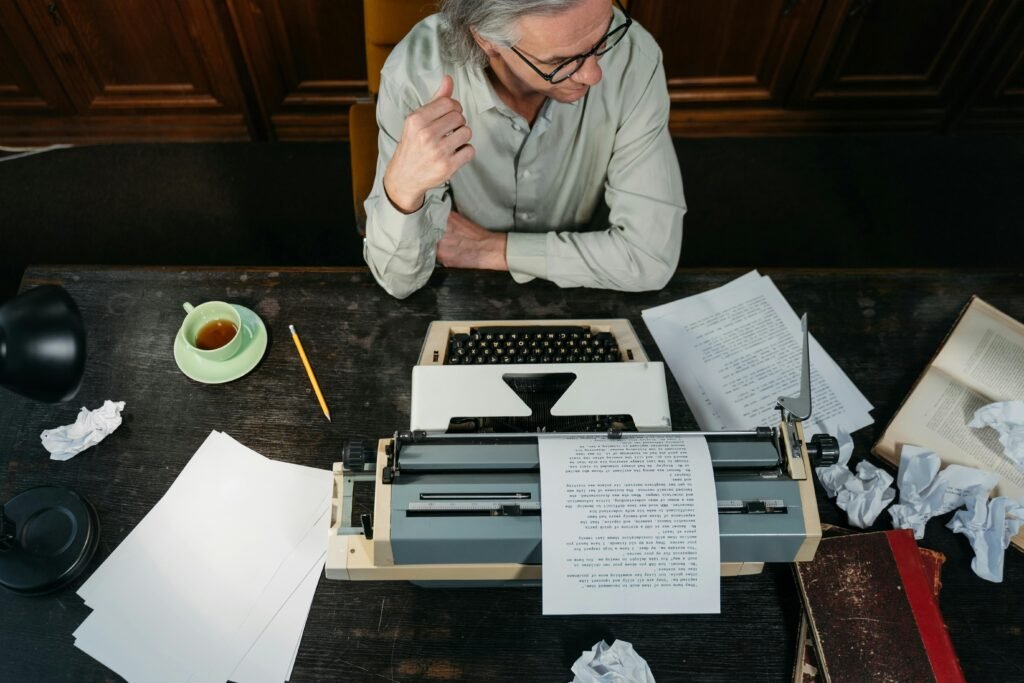Research in Fiction Writing: Transforming Imagination into Authentic Narratives
Research in Fiction Writing: Transforming Imagination into Authentic Narratives The Hidden Power of Research in Storytelling Every captivating story carries an invisible scaffold of meticulous research in fiction writing—a foundation that transforms raw imagination into a credible, immersive experience. While readers might perceive fiction as pure creativity, successful authors know that thorough investigation is the secret ingredient that breathes life into their narratives. Why Research Matters in Fiction Research isn’t just about fact-checking; it’s about creating an authentic world that readers forget they’re reading fiction. By diving deep into historical contexts, technical details, and cultural nuances, writers can: Create narratives that feel remarkably real Build characters with genuine, complex backgrounds Avoid jarring inaccuracies that disrupt reader immersion Add depth and richness to the storytelling Provide readers with subtle, enlightening insights Strategic Research Approaches for Fiction Writers 1. Historical Research: Rebuilding Lost Worlds Historical fiction demands more than surface-level understanding. Writers must reconstruct entire social ecosystems, including: Precise period-specific social structures Technological limitations and capabilities Intricate cultural communication patterns Geopolitical landscapes Economic constraints and opportunities 2. Technical Research: Mastering Domain Knowledge Whether writing about forensic science or space exploration, technical accuracy is paramount. Successful writers: Consult domain experts Study specialized academic resources Understand complex procedural details Translate technical complexity into digestible narrative elements Maintain scientific or professional credibility 3. Cultural Research: Navigating Human Complexity Beyond facts, cultural research explores the subtle art of human interaction. This involves: Understanding regional communication styles Exploring social dynamics and unspoken rules Recognizing cultural sensitivities Developing authentic dialogue Representing diverse experiences respectfully Modern Research Tools for the Contemporary Writer Technology has revolutionized research methodologies: Online academic databases provide instant access to scholarly work Digital archives preserve historical documents Translation tools help explore global perspectives Virtual research platforms connect writers with experts worldwide Specialized online communities offer niche insights Balancing Research and Creative Flow Preventing Research Paralysis While research is crucial, it shouldn’t overwhelm the creative process. Writers can: Set clear research boundaries Allocate specific time for investigation Focus on narrative-relevant details Integrate facts organically Maintain storytelling momentum Genre-Specific Research Strategies Tailoring Investigation to Your Narrative Historical Fiction Requires deep archival research, an understanding of linguistic evolution, and the reconstruction of social hierarchies. Science Fiction Demands the exploration of cutting-edge scientific theories, technological trends, and potential future scenarios. Crime and Thriller Genres Require an understanding of forensic procedures, legal intricacies, and criminal psychology. Ethical Considerations in Research Responsible representation is paramount. Writers must: Respect cultural sensitivities Seek diverse perspectives Avoid stereotypical representations Acknowledge research limitations Maintain cultural humility The Art of Subtle Integration Great research becomes invisible when seamlessly woven into narrative fabric. Techniques include: Using character perspectives to introduce information Creating organic, natural dialogue Showing, not telling Focusing on human experiences Avoiding information dumps Continuous Learning: Research as a Writing Companion Research is not a one-time task but a lifelong journey. Successful writers: Remain curious Stay open to new information Challenge existing understanding Develop robust research skills Embrace interdisciplinary learning About Phillip Strang: Master of Investigative Storytelling With thirty-five novels spanning multiple genres, Phillip Strang exemplifies the power of thorough research in creating compelling narratives. Featured Books Showcasing Research Depth Dark Streets Genre: Crime Fiction Description: An engaging exploration of Sydney’s criminal underworld, revealing the city’s darker side through masterful storytelling. Purchase Links: Amazon Malika’s Revenge Genre: International Thriller Description: A gripping narrative featuring a strong female protagonist exploring morally complex themes in an international setting. Purchase Links: Amazon Death Unholy Genre: Thriller Description: A compelling story showcasing Strang’s versatility in storytelling, offering readers an intense and engaging narrative experience. Purchase Links: Amazon Connect with Phillip Strang Website: Phillip Strang Official Site Amazon Author Page: Explore More Books Goodreads Profile: Reader Community









![Writing Courses: Aspiring Authors Learning Creative Writing Skills and Techniques]](https://phillipstrang.com/wp-content/uploads/2025/03/pexels-mart-production-7333504-1024x683.jpg)